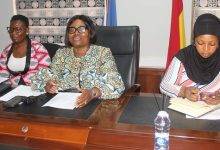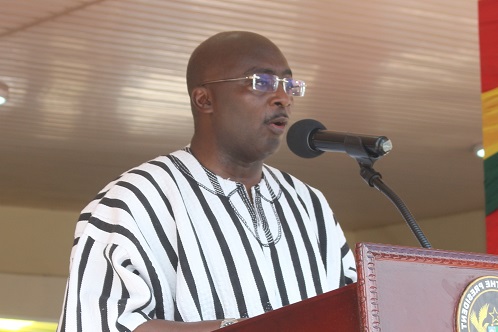
The Vice President, Dr Mahamudu Bawumia, has expressed hope that the roll out of the Gulf of Guinea Northern Regions Social Cohesion (SOCO) project will address key socio-economic hurdles facing people in the northern part of Ghana.
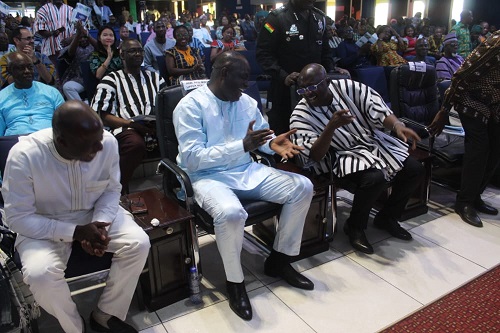
He said it was an undeniable fact that many parts of the north have, over the years, been hit by acute economic challenges, and the roll out of the project was a timely intervention because it had the potential to correct some of the key emerging and recurring challenges in the northern part of the country.
The Vice President was speaking at the launch of the SOCO project in Bolgatanga, capital of the Upper East Region, over the weekend.
The launch of the project here in Bolgatanga was preceded by a regional sensitisation exercise by the Ministry of Local Government, Decentralisation and Rural Development (MLGDRD) a couple of months ago, where revered stakeholders were taken through a week-long programme on the impact of the project on the livelihoods of the folk from the beneficiary districts and municipalities.
Dr Bawumia said the project was a $450 million multi-country credit facility secured from the World Bank.
The beneficiary countries, he mentioned were Ghana, Benin, Cote d’Ivoire and Togo, explaining the project targeted the over 16 million people living in the northern parts of the beneficiary countries, who had been threatened by the spread of conflict from the Sahel, as well as increased vulnerability to the impacts of climate change.
In Ghana, the project would be implemented in 48 Municipal and District Assemblies (MDAs) in the six beneficiary regions; such as Oti, Northern, Savannah, North East, Upper East and Upper West, the Vice President stated.
Dr Bawumia said the external pressures of conflicts and climate change dealt a huge blow to the economic strength of the country, “and these external pressures of conflicts and climate change have been exacerbated by the outbreak of the COVID-19 pandemic which had compounded the Regions challenges of poverty, exclusion, and weak governance.”
Of the $450 million, $150 million had been allocated to Ghana, and according to Dr Bawumia, the project if fully implemented, would rectify the impact of the spillover of conflicts and extremism from the Sahel region, and also drastically lessen vulnerability, improve economic opportunities, build public trust, and strengthen local institutions.
The Upper East Regional Minister, Stephen Yakubu, in a speech read on his behalf by the Upper West Regional Minister, Dr Hafiz Bin Salih, the beneficiary regions were grateful to the World Bank for the project which sought to deal with phenomena relating to poverty, fragilities, conflicts and violence.
For his part, the Country Director for the World Bank, Pierre Frank Laporte, noted the implementation of the programme aimed at proactively averting the spread of conflicts from the Sahel, reducing vulnerability to climate change, and strengthen local institutions, economic opportunities, and public trust in the beneficiary regions, districts, municipalities and communities.
According to him, the lack of opportunities for the youth bred conflicts and intercommunity tensions and structural fragilities which posed an increasing security issue, hence the implementation of the intervention would bring solutions to those growing setbacks.
FROM FRANCIS DABRE DABANG, BOLGATANGA

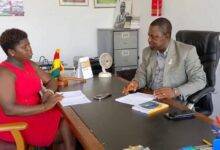
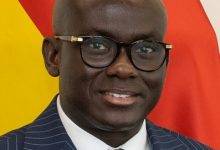
![Dr Faustina Frempong-Ainguah deputy government Statistician [second from right] with the staff of ATU and others photo Lizzy Okai](https://www.ghanaiantimes.com.gh/wp-content/uploads/2024/04/WESTERN-NORTHERN-Dr-Faustina-Frempong-Ainguah-deputy-government-Statistician-second-from-right-with-the-staff-of-ATU-and-others-photo-Lizzy-Okai-220x150.jpg)


